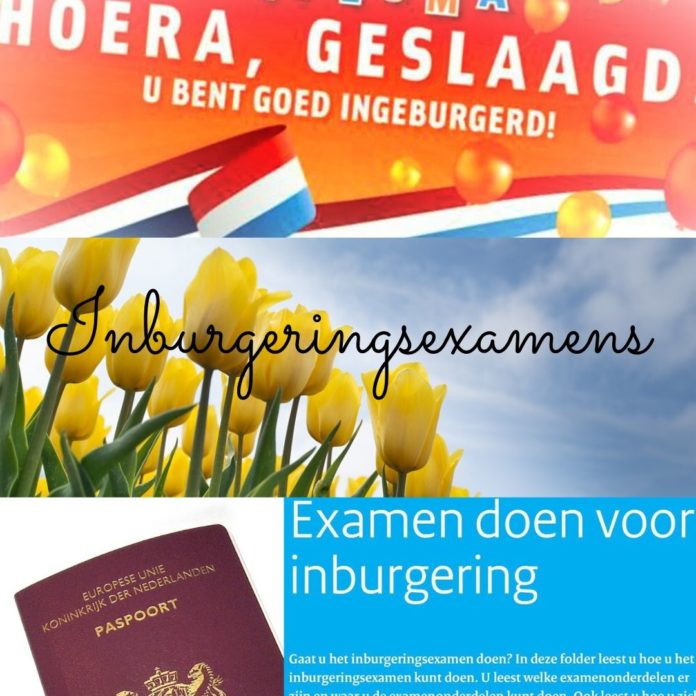The Netherlands is famous for being the most English-speaking country in mainland Europe. This is a country where it is fabled that one can survive if one never spoke any Dutch, literally for years altogether! Dutch also are rather accommodating and will come out with their English when a non-native starts talking in Dutch with them! Does it mean that they do not want you to learn Dutch? No, far from it. Is there any point in learning the language if you can survive without learning it?
Yes, it is helpful to learn Dutch and master it because that will not only enhance your employability in this country but will also help you to strengthen your bond with this country and its people. In some cases, it is also a requirement.
Requirement
To obtain Dutch nationality or secure a residence permit, one needs to take the Civic Integration Examination in the Netherlands. It is called “Inburgeringsexamen”.
Inburgeringsexamen- What’s that?
To show that you have sufficient knowledge of the Dutch language and the society, you must take an exam. Residents from a non-EU country must take the Inburgeringsexam if they want to apply for a Dutch residence permit or eventually for a Dutch passport. Please note: If you’re a spouse of a Dutch citizen and wish to get Dutch citizenship or permanent residence, you must also pass the integration exam.
Exam from abroad?
For people relocating to the Netherlands, most of them take the civic integration exam in the Netherlands, but it is also possible to take this examination from the applicant’s own country of residence before moving to the Netherlands. You can appear for the exams at the Dutch embassy or consulate in the country of residence. The exam assesses basic knowledge of the Dutch language and society. It is also possible to become a citizen by taking the NT2 State Exam. However, most people who must do civic integration in the Netherlands, do so by taking the civic integration exam. It is part of your integration process.

Civic Integration exam: Which level?
The Dutch government plans to raise the language level for applying for a stronger residence permit and naturalization from level A2 to level B1. But the increase to level B1 is not expected to happen in 2022. That is why the language level to be achieved in 2022 will remain A2 for the time being. (Source: IND website)
The Inburgeringsexam at A2 level
What does it mean, level A2? A2 is the level specified in the Common European Framework of Reference for Languages (CEFR). This level enables you to make daily life conversations on a basic level, for example, a simple conversation with your child’s teacher, small talk with your colleague, etc. You’re expected to understand the key points in a conversation, and respond in short, connected sentences.
Exam components
The civic integration exam consists of six parts. There are four language skills exams (Reading, Listening, Speaking, Writing). Other than these four papers, there is the paper on Knowledge of the Dutch Society (KNM) and the ONA- the Orientation of the Dutch Labor Market exam. It is about working and finding work in the Netherlands. The passing score for the Inburgering exam is 60%. If you do not pass, you can retake your exams.
Reading paper
The reading exam consists of 10-12 passages on various subjects, and you’re required to answer 25 questions. The texts are mostly simple, for example, a short formal mail or letter, an advertisement from a daily newspaper, a description of a trip, etc. There will be 3-4 multiple choice questions based on the given text. It is a computer-based exam, and you need to finish it within 65 minutes.
Tips to take the Reading/Lezen exam
First and foremost, you must be able to read at the A2 level. This means that you should be able to read short and medium-length texts. Those can be advertisements, announcements, timetables, letters, etc. Tip: First read the questions and then read the passage!
There are, of course several websites where you can practice for taking the Reading exam. I also suggest the students read a lot, not only Dutch textbooks but also Dutch Children’s Books-the. Short sentences used in these books help you to formulate simple sentences of your own! I always advise my students to spend time increasing their vocabulary to be able to qualify for this paper. Practice as many reading passages as you can. It pays if you do this regularly. It familiarises you with the system, and your reading tempo also increases.
Read the passage well
Another important tip is to read the passage well, because the answer options are tricky, and it is very easy to make a mistake! Please read the entire passage. Answering the questions based on ‘clue word’ in the paragraph is too risky and must be avoided at all costs.
An article by Chaitali Sengupta. She is the founder of the language institute ON-POINT COMMUNICATIONS and gives online Inburgeringsclasses.
Next Week: part 2: How to tackle the Luisteren/ Listening paper
















